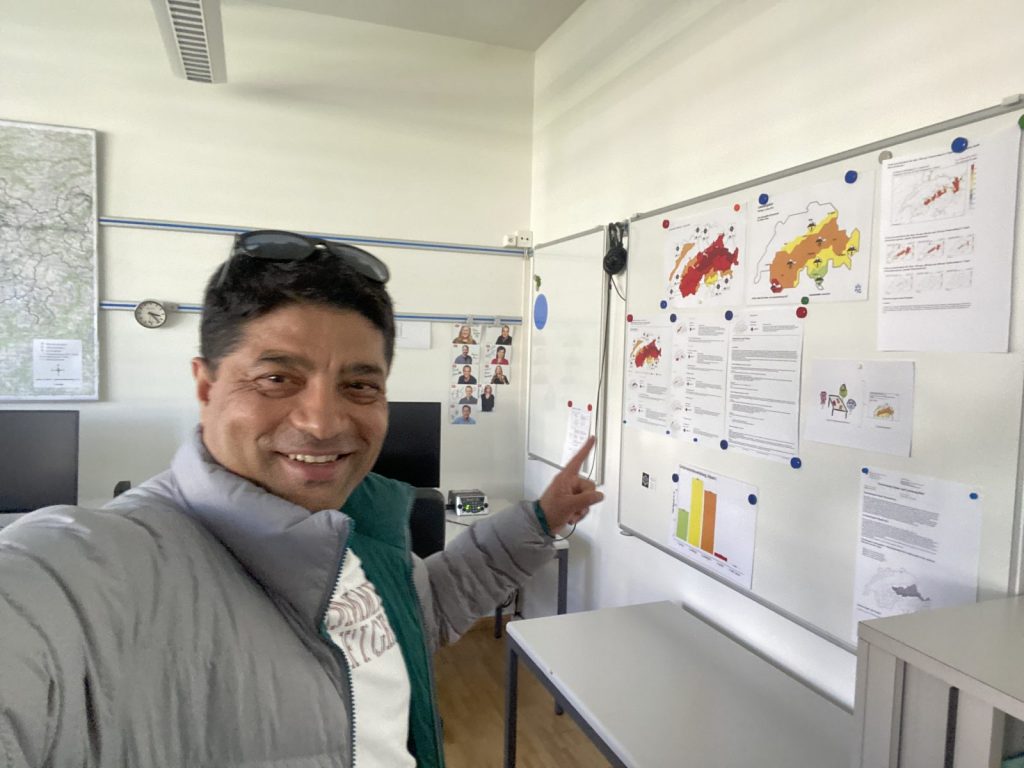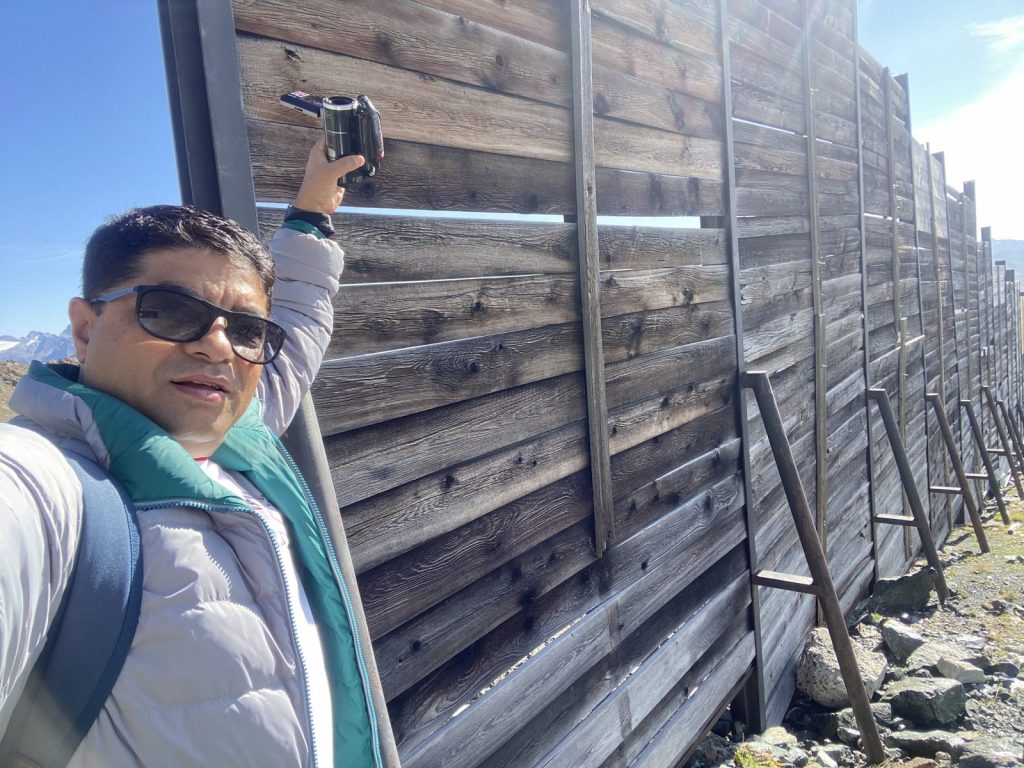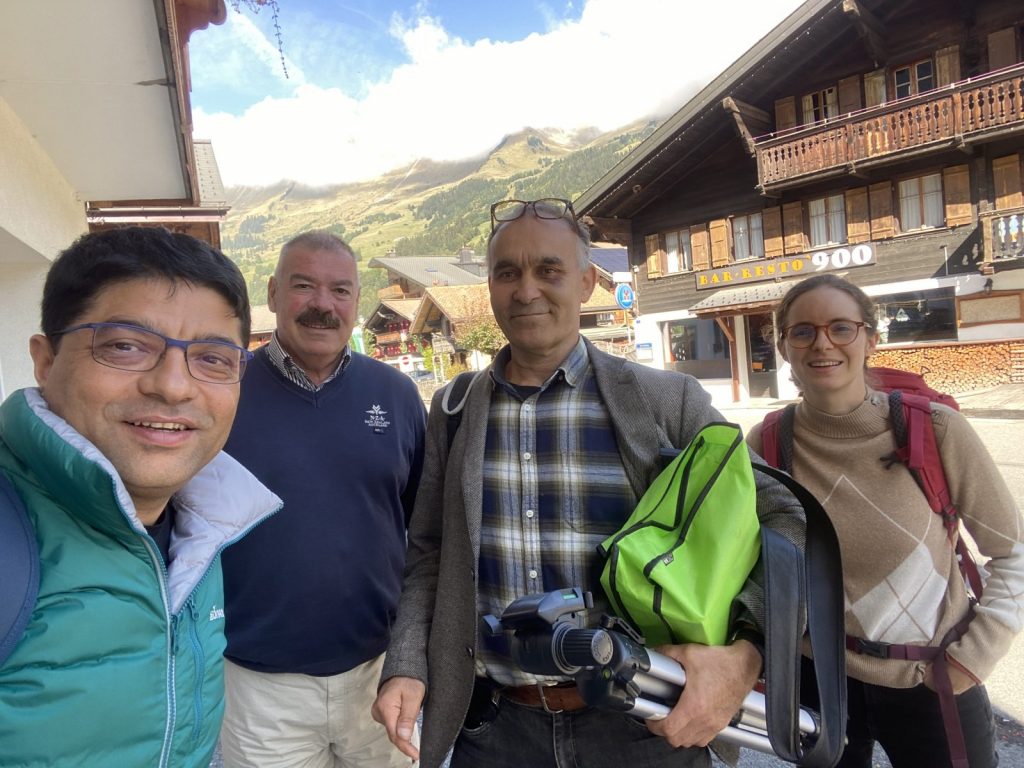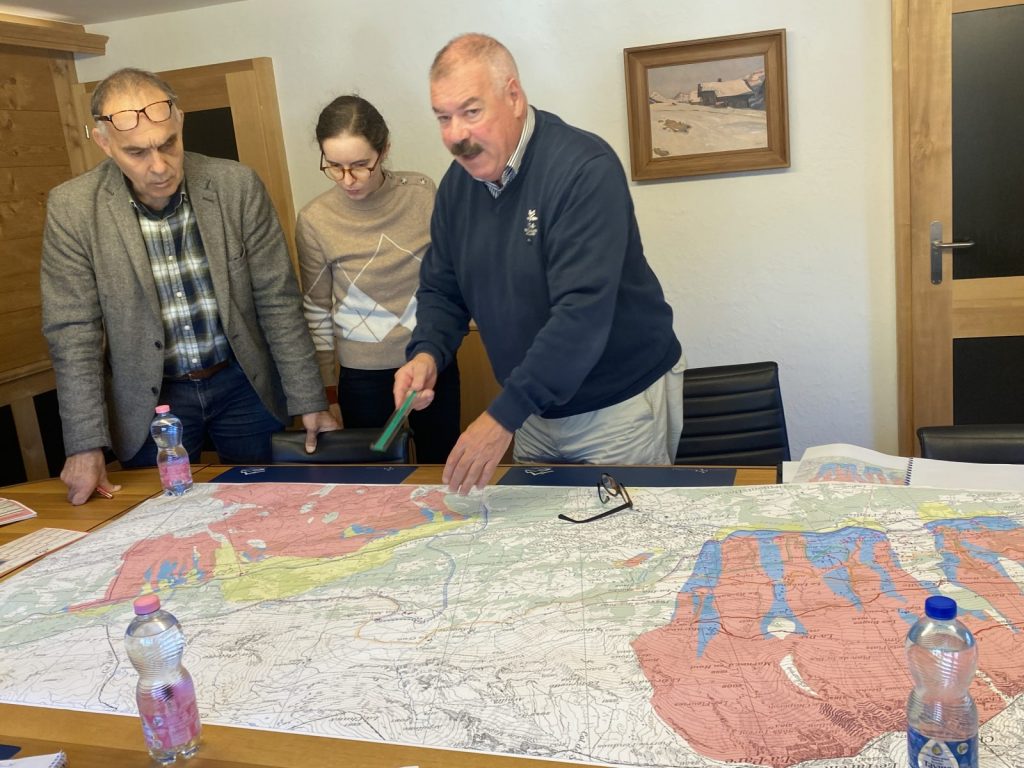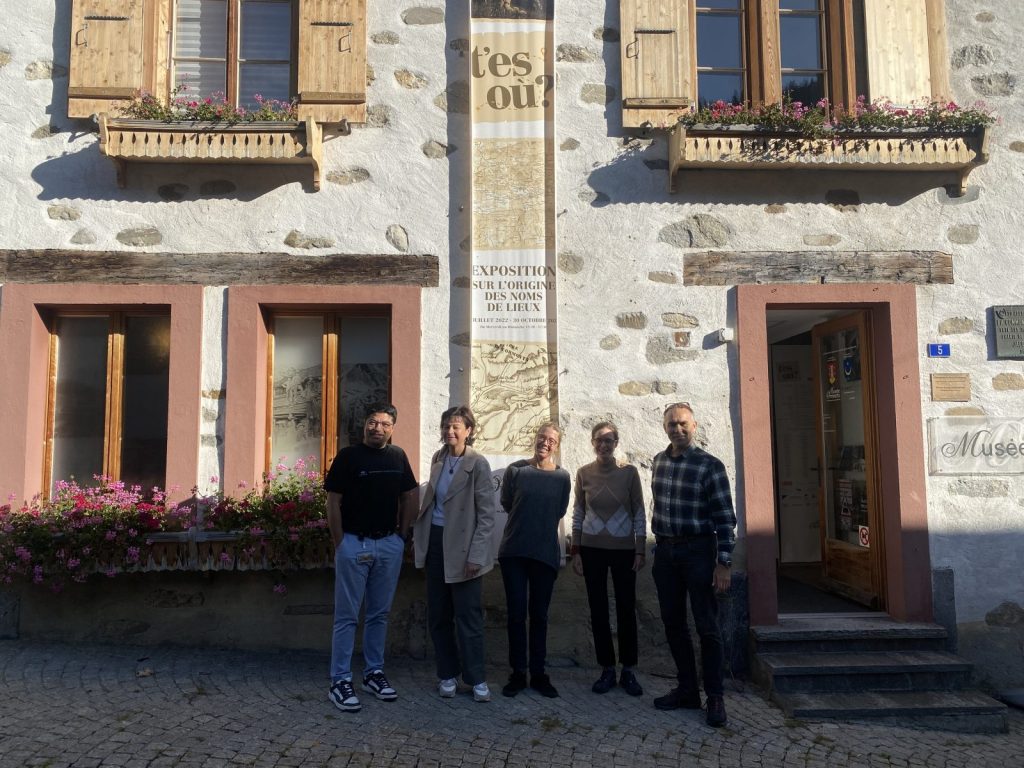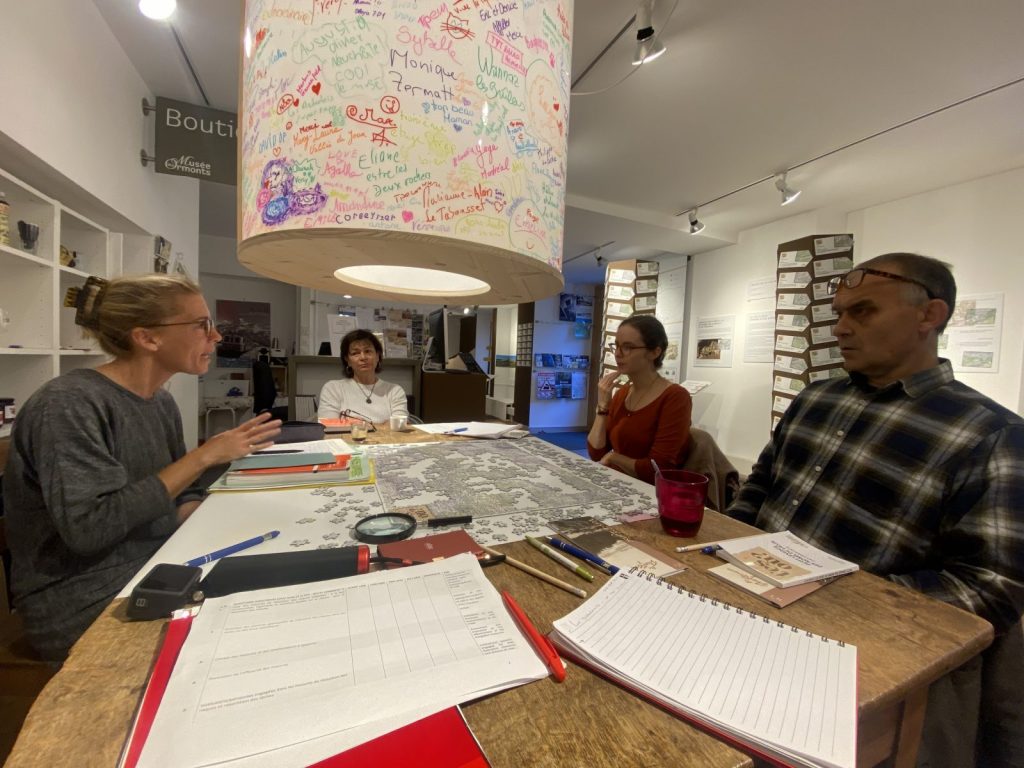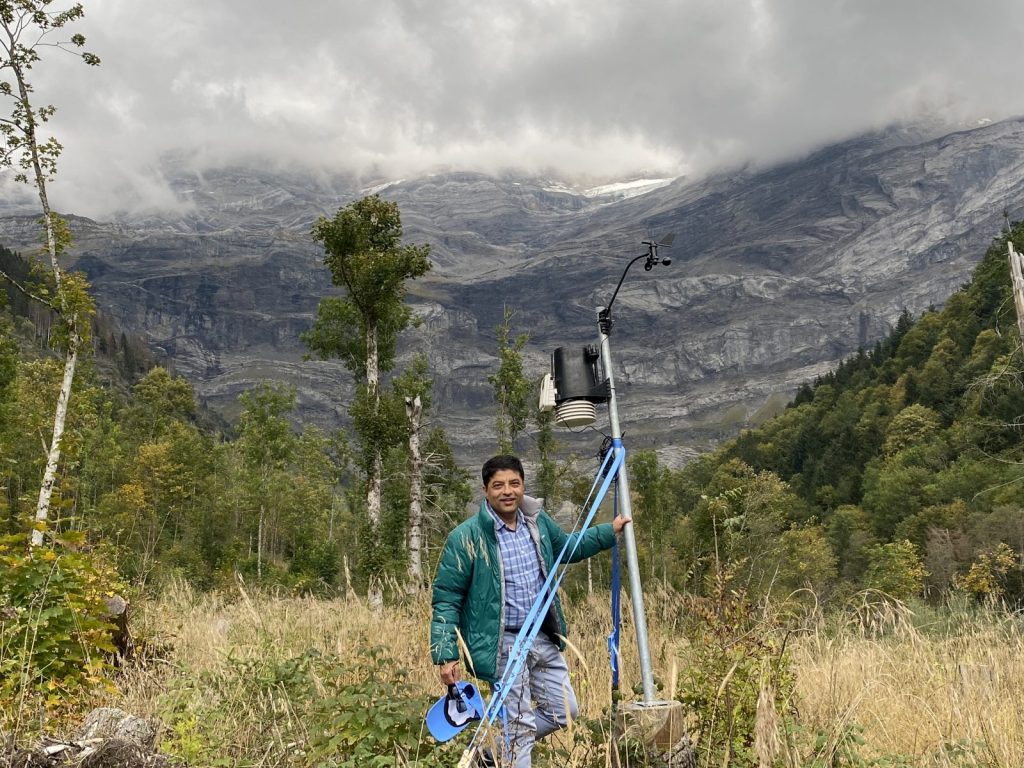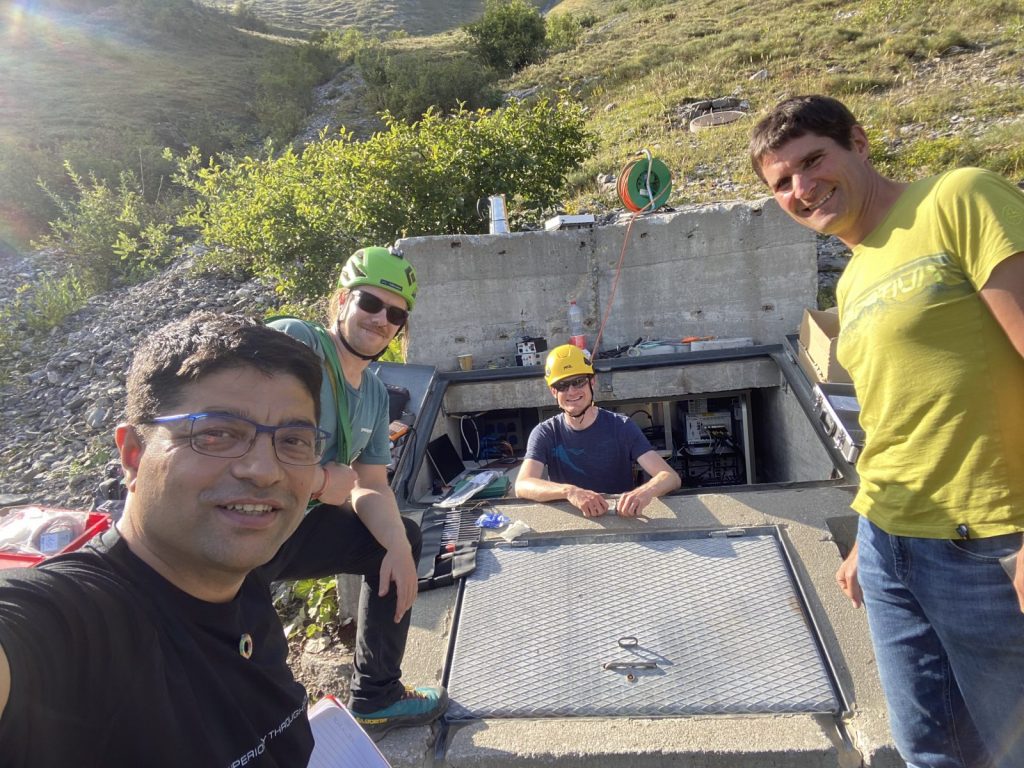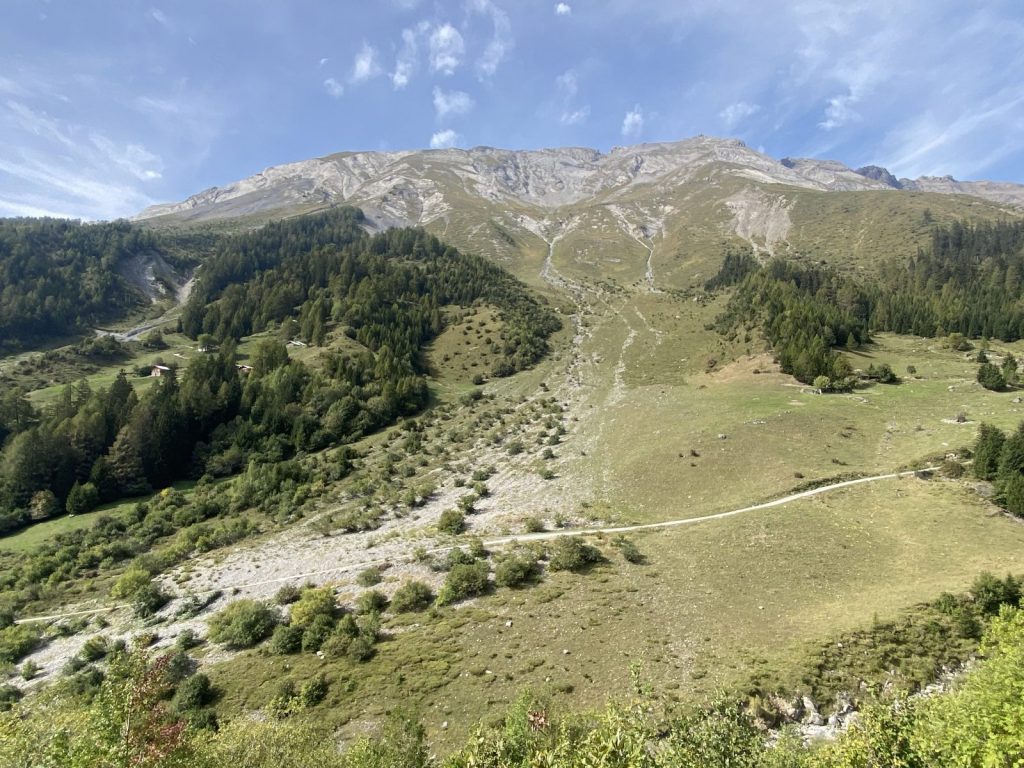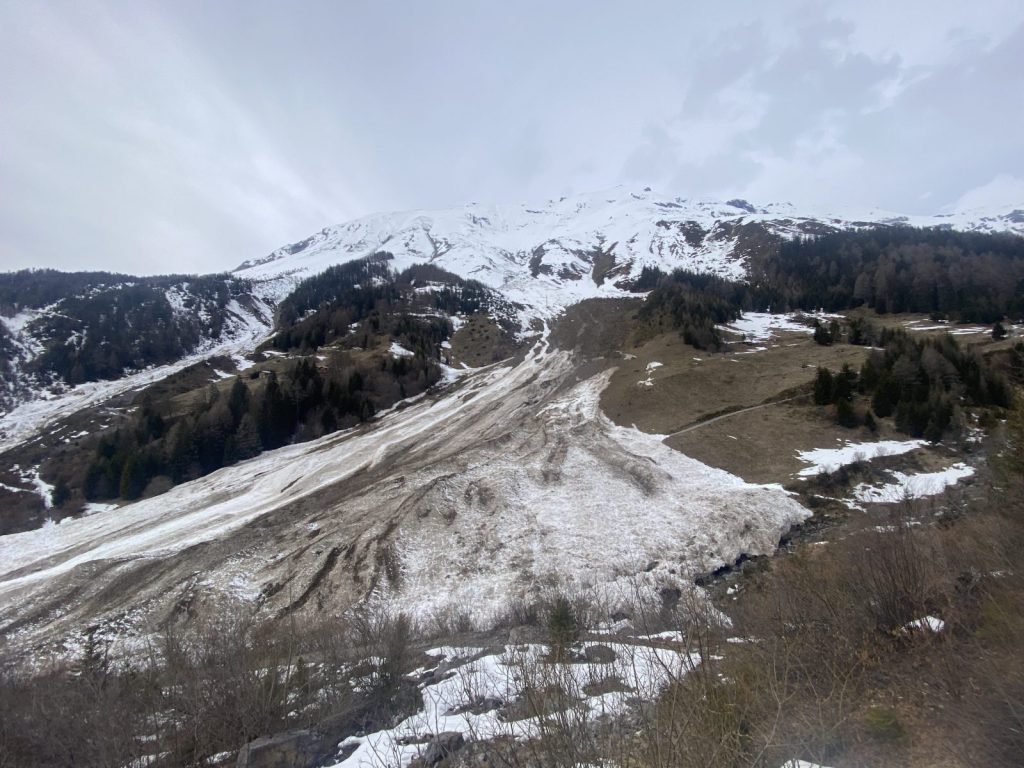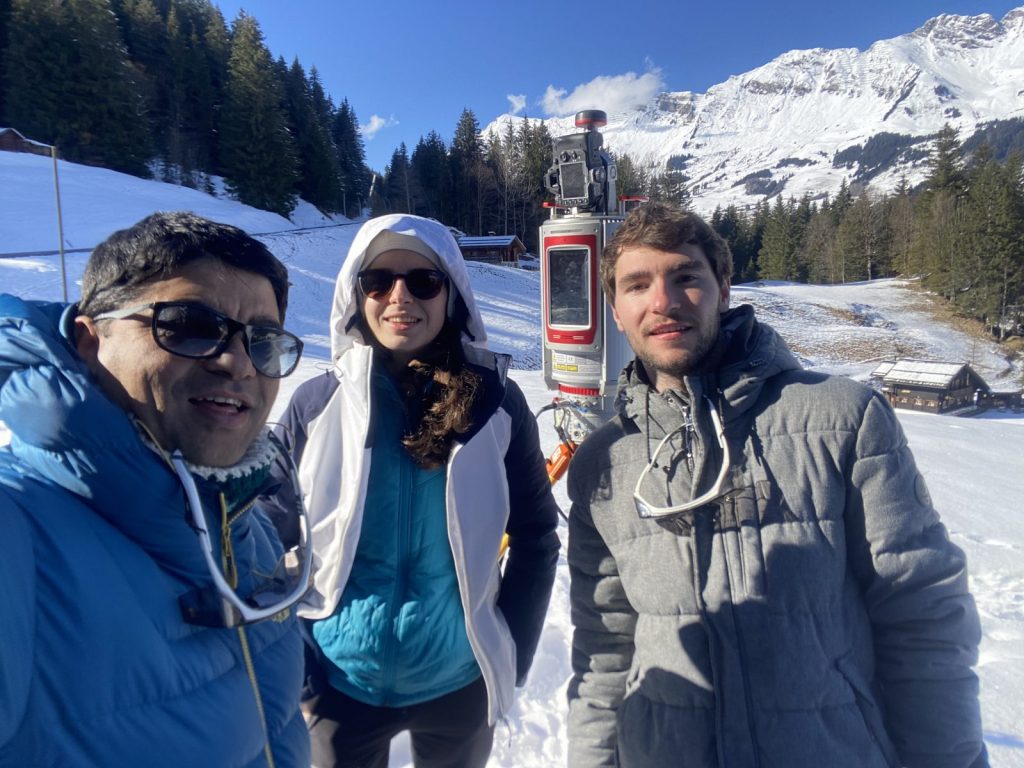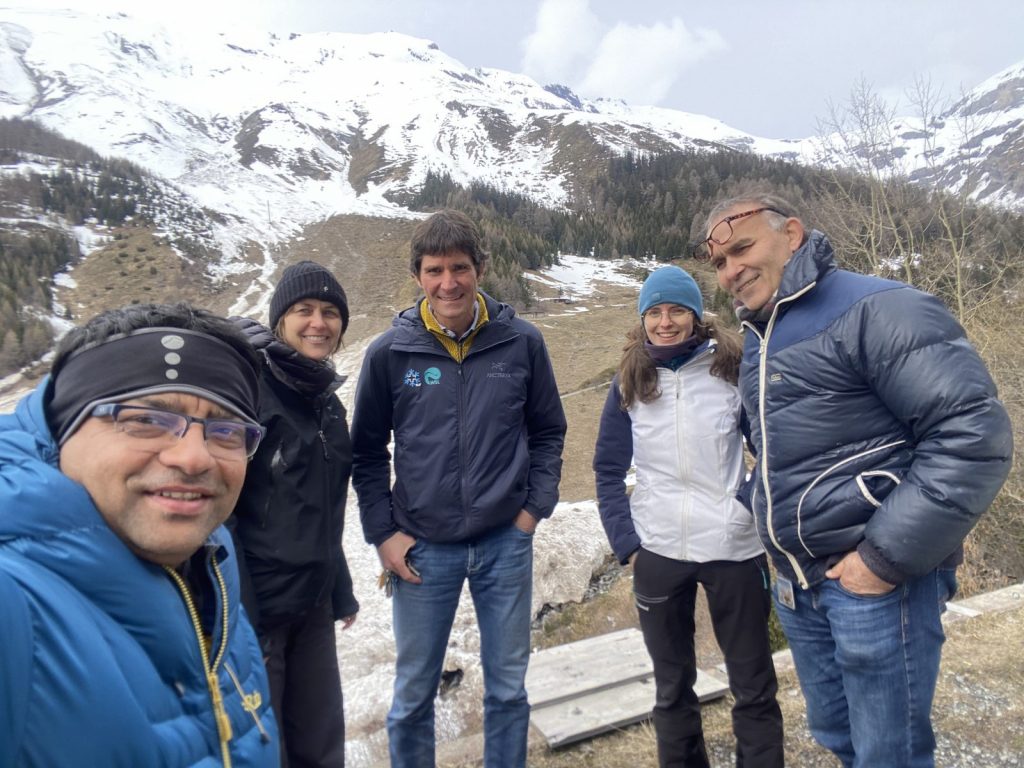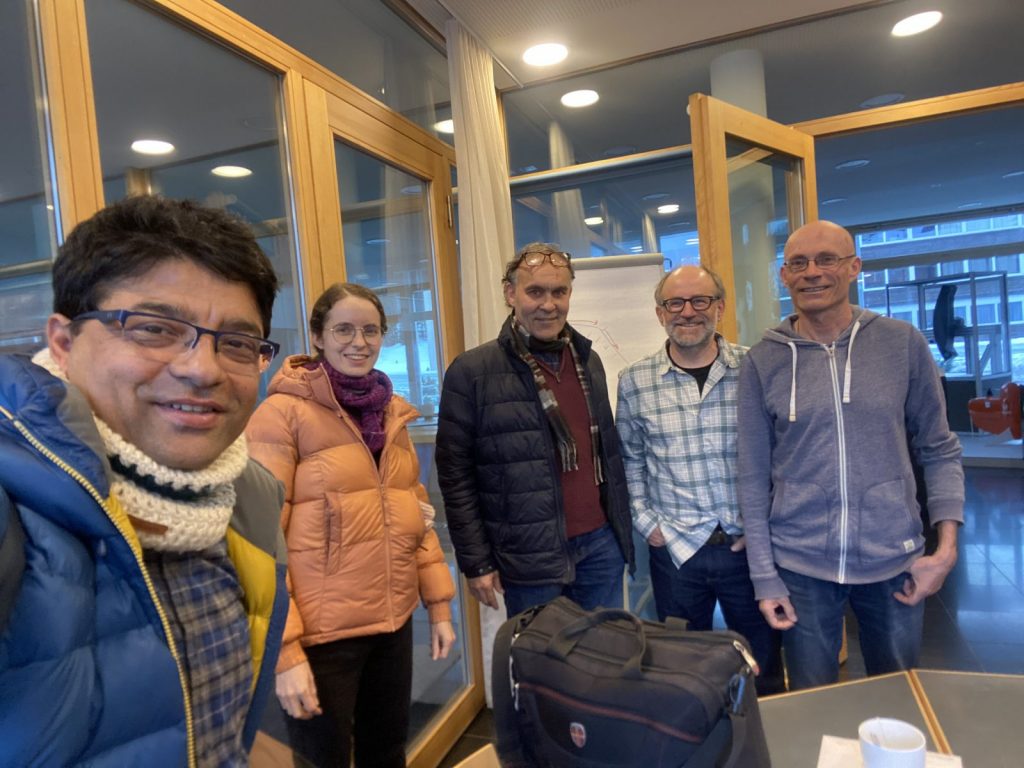The field work carried by Deepak KC, a PhD Student, at the Institute of Earth Sciences (ISTE), of the University of Lausanne (UNIL) – who is also working with UNDP in Nepal as Programme Analyst – Climate Change and Resilience – is a part of Collaborative Research with EPFL for the CROSS Project and the mission is planned to understand some of the key information on Avalanche Risk Management in Switzerland for the project- “Understanding loCal Risk cUlture(s) in the context of climate CrisIs: AvaLanche hazard from the perspective of anthropology and natural sciences & technologies / CRUCIAL”, led by Professors of UNIL and EPFL – Prof Michel Jabodeyoff, UNIL (FGE, ISTE) and Prof Florence Graezer Bideau, EPFL (CDH) respectively. The team is completed by Amalia Gutierrez, a PhD student member of the Risk Group (ISTE) at UNIL which was present for part of the field work, particularly in the Diablerets area, and Chiara Bortolotto, a researcher from the EPFL (CDH).
The team has completed two field visits during the period between 22 September-10 October 2023 and 03 March -17 March 2024 and has been working under the Guidance of Prof Michel Jaboyedoff, ISTE-UNIL. The missions include field visits, bilateral meetings with various stakeholders/ institutions at federal, cantonal and local /community levels which have been engaged in Avalanche Risk Management (ARM) – directly and/or indirectly and one or various aspects of ARM.
This project focuses on cultural heritage and knowledge on Avalanche Risk Management, inscribed on the UNESCO Representative List of Intangible Cultural Heritage of Humanity in 2018 by Switzerland (in collaboration with Austria) and aims at unpacking the idea of a culture and tradition of risk management particularly related to avalanches. The field mission also included visits to observe the ground-based interventions, interactions and discussions with the relevant experts in the field, meeting with CROSS/CRUCIAL team for progress assessment and planification, attending workshops/ seminar, and lab meetings both inside and outside of the University. The expected output of this mission is to widen the understanding and documenting the evolution of Avalanche Risk Management in Switzerland which has been present historically. Progress in ARM is developing along with the evolution of science and technology, building upon traditional the socio-cultural practices of Avalanche Risk Management of preparation, mitigation and management. Particularly on the contributions of recent developments of science and technology contributes in regards to risk assessment and analysis, risk reduction with protection measures, early warning services and during and post avalanche crisis situations.
Engagement / Meetings/ Workshop/ Field Visits during the Missions:
- Workshop on Glaciers: a transdisciplinary perspective on current issues, SION – 27 Sept, 2023
- Federal Institutions – WSL/SLF Experts at Davos and Sion experimental site
- SION Experimental Site at Sion (28 September 2023 and 08 March 2024)
- WSL/SLF Davos, 06 October 2023 ( Avalanche Early Warning Services)
- WSL/SLF Davos, 13 and 14 March 2024 (Protection Measures, Modellings)
- Academic Institution – University of Geneva, 29 September 2023
- Local Organization (Musee-des-Ormonts -Les Diablerets ),04 October 2023
- Cantonal Government – Canton Vaud, 12 March 2024
- Local Government Authority- Les Diablerets, 04 October 2023
- Private Sector (High Altitude Stations- IMIS)- SensAlpin, Davos, 14 March 2024
- Private Sector (Avalanche Trigger)- Glarus , Inauen Schatti, 15 March 2024
- Collaborative academic institution – EPFL (Various dates)
Recent developments in technologies regarding training courses, preventive avalanche triggering, communication devices, avalanche bulletins and warnings have had a positive impact on the advancement of knowledge for ARM. Improvements in risk assessment and analysis, early warning services, protection and mitigation measurs, and crisis management have also contributed to a reduction of risk in terms of assests and lives in Swiss Alps over the past years.
